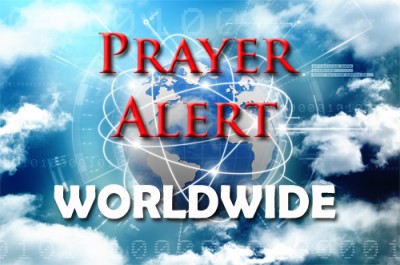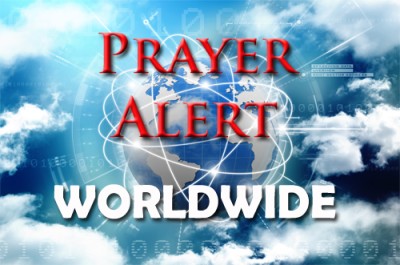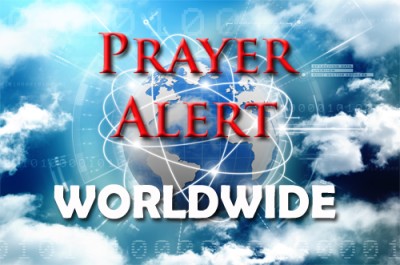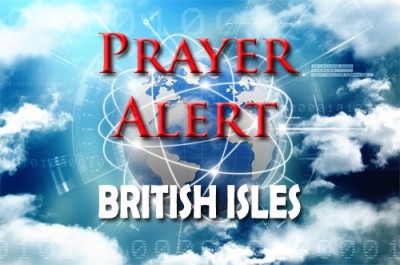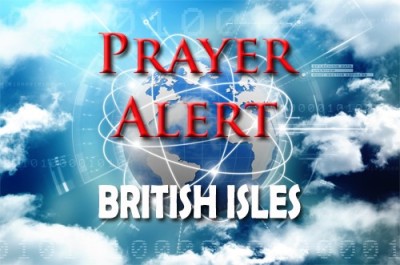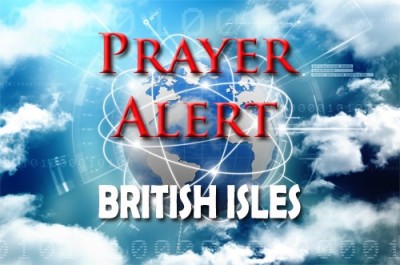Asia: Russia / North Korea alliance worries USA
07 Sep 2023Kim Jong Un will visit Vladimir Putin in September; the USA is concerned they will discuss North Korea providing Moscow with weapons to use in Ukraine. An arms deal makes transactional sense. Moscow needs ammunition and artillery shells. Pyongyang has plenty of both. Sanction-starved North Korea needs money and food after three years of border closures. Also, the breakdown of talks with the USA has left North Korea more isolated than ever. The US has warned of an arms deal between the two countries for some time: now, a leader-level meeting between Kim and Putin catapults this into the next realm. Russia’s desperate situation means Mr Kim will be able to extract a high price. On 4 September, South Korea's intelligence service briefed that Russia's defence minister has suggested that Russia, China and North Korea hold joint naval drills, like those carried out by the USA, South Korea and Japan, which Kim Jong Un so detests.
Kenya: Africa climate summit
07 Sep 2023A climate summit in Nairobi has seen dozens of world leaders discuss climate solutions for Africa’s 1.3 billion people affected by climate change. Africa is the fastest-growing continent, and the most vulnerable to climate change. 85% of the worst-hit countries in the climate crisis are African. The Daily Nation newspaper proclaimed this gathering ‘Africa's moment.’ Kenya’s president Ruto came to power with climate change relief and accountability cornerstones of his foreign policy. Addressing the conference, he claimed, ‘Climate change is crimping Africa’s economic growth annually by 5 to 15%, despite Africa accounting for less than 4% of global emissions.’ The intention was for delegates to come to see resource-rich African states as crucial stakeholders in the green economy. Africa’s abundance of natural resources only receives 3% of global energy investments. The summit’s outcome sees nations promising financial solutions to climate-induced food insecurity, finding technical resolutions to food scarcity and storage, and making African markets attractive to investors.
Nepal: growing trend of attacking churches
07 Sep 2023Attacks on two churches in Nepal over the weekend were just the latest in a string of recent violence against Christians. The churches are in the province of Lumbini, which borders India. Photos and videos reviewed by International Christian Concern (ICC) showed broken windows and other signs of violence around the properties, including damage to fences and a broken motorbike. Another photo shared on social media showed two men, identified as pastors, being assaulted on the street. Locals smeared the pastors’ faces with a sticky black substance in a cultural sign of hatred and disrespect. The Lumbini attacks are the sixth and seventh such attacks against churches in Nepal in two weeks. ‘It’s spreading like wildfire’, a Nepalese civil society leader has told ICC. ‘Perpetrators, seeing little to no response from the authorities in recent weeks, are encouraged to act more.’
USA: Jesus March ministry
31 Aug 2023A handful of twenty-somethings went outside the four walls of their church to share the Gospel on the streets every Sunday night for five years. On fire with Holy Spirit power, they led their peers to Jesus - even changing the spiritual atmosphere of the area. They knew there was more for them than saving souls, and their actions led to planting a church for the new Christians led by Ivan, the son of the pastor who encouraged their outreach. He organised the United Church to disciple, train, and send followers of Jesus to proclaim His salvation. The church then birthed Jesus March, a ministry of United Revival Ministries, both under its auspices. The ministry has hosted 125 prayer and worship events, connected with 200 churches, commissioned 6,500 evangelists, and introduced thousands of people to Jesus since its formation five years ago. By 2024 United Revival will have brought Jesus March and evangelism training, worship, and prayer to nine American cities.
She is free!
31 Aug 2023Christians and workplace discrimination
31 Aug 2023The Catholic Union, Christian Institute, and Evangelical Alliance have written to the chair of the human rights committee, asking for religious freedom to be a ‘key part’ of a parliamentary inquiry into human rights at work. Catholic Union director Nigel Parker says that it is becoming increasingly difficult to be a faithful Catholic in many workplaces in this country, and his concerns are shared by people from other denominations and other faiths. A Catholic Union survey found that almost five in ten workers do not feel able to talk about their faith openly with colleagues, with 41% of respondents saying they didn’t believe religious discrimination was given the same weight as age, race, sex, and sexuality discrimination. Although the inquiry's focus includes ‘freedom of thought, conscience, and religion’, they worry this won’t receive enough attention. They want a separate session discussing religious freedom at work to help shape the final recommendations for the Government.
Improving or destroying water quality
31 Aug 2023Only 14% of river water bodies in England currently achieve ‘good ecological status’. Pollution is the biggest problem; a quarter of rivers are not in good ecological health due to sewage pollution from water companies, homes and businesses, costing £1.2bn per year. Wildlife is threatened by poor water quality as fish spawning grounds are lost to silt building up. Too many nutrients in rivers feed algae growth, leading to streams and rivers becoming choked up with vegetation and a decrease in plant and wildlife diversity. Sadly, government ministers have proposed scrapping the pollution rules to build more homes - which will worsen sewage pollution. They propose building 100,000 new homes by 2030, loosening the rules around building near waterways in protected areas. The Wildlife Trust accused the Government of disgusting behaviour, saying that change will lead to ‘lots more poo in our rivers’ and ‘not solve the root causes of housing problems’.
Government not prioritising disability rights
31 Aug 2023The Government refused to attend a UN review of its treatment of disabled people after an inquiry warned of grave violations of disabled people’s rights. The UN report found welfare reforms had adversely affected disabled people. The UK's delegation should have gone to the Geneva hearing on 28 August to assess their progress, but the Government pulled out, saying it would meet UN officials in March 2024 instead, sparking anger from campaigners. The UK published responses to the UN's recommendations in 2018, 2021, and 2022, and was to give a further update this year. After its no-show there were feedback sessions with British disability rights groups who complained, ‘No one from the Government heard the facts and stories of increasing poverty, lack of support, inaccessible services, and an infrastructure that limited the life chances of disabled people’.
